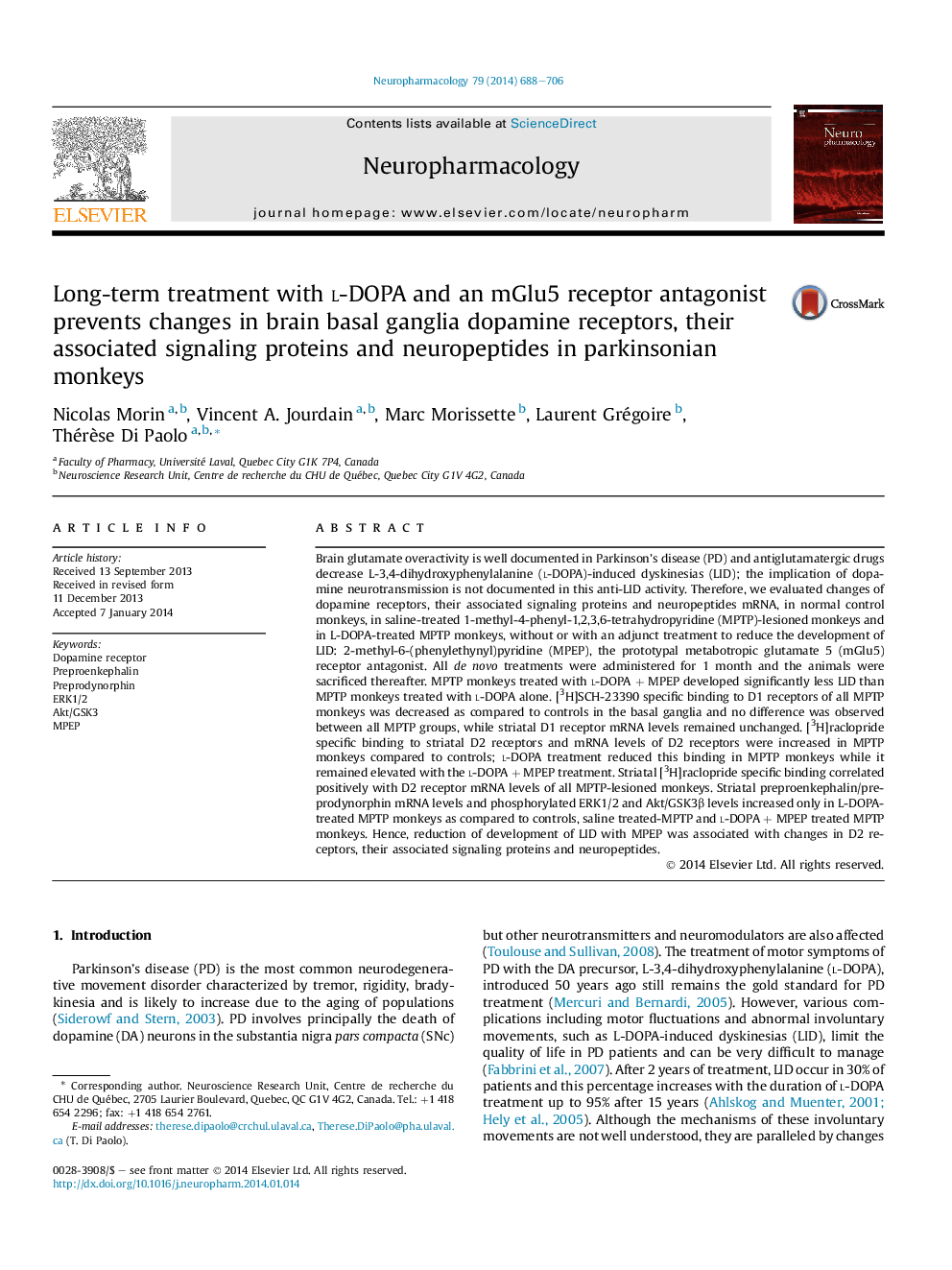| Article ID | Journal | Published Year | Pages | File Type |
|---|---|---|---|---|
| 5814711 | Neuropharmacology | 2014 | 19 Pages |
Abstract
Brain glutamate overactivity is well documented in Parkinson's disease (PD) and antiglutamatergic drugs decrease L-3,4-dihydroxyphenylalanine (l-DOPA)-induced dyskinesias (LID); the implication of dopamine neurotransmission is not documented in this anti-LID activity. Therefore, we evaluated changes of dopamine receptors, their associated signaling proteins and neuropeptides mRNA, in normal control monkeys, in saline-treated 1-methyl-4-phenyl-1,2,3,6-tetrahydropyridine (MPTP)-lesioned monkeys and in L-DOPA-treated MPTP monkeys, without or with an adjunct treatment to reduce the development of LID: 2-methyl-6-(phenylethynyl)pyridine (MPEP), the prototypal metabotropic glutamate 5 (mGlu5) receptor antagonist. All de novo treatments were administered for 1 month and the animals were sacrificed thereafter. MPTP monkeys treated with l-DOPA + MPEP developed significantly less LID than MPTP monkeys treated with l-DOPA alone. [3H]SCH-23390 specific binding to D1 receptors of all MPTP monkeys was decreased as compared to controls in the basal ganglia and no difference was observed between all MPTP groups, while striatal D1 receptor mRNA levels remained unchanged. [3H]raclopride specific binding to striatal D2 receptors and mRNA levels of D2 receptors were increased in MPTP monkeys compared to controls; l-DOPA treatment reduced this binding in MPTP monkeys while it remained elevated with the l-DOPA + MPEP treatment. Striatal [3H]raclopride specific binding correlated positively with D2 receptor mRNA levels of all MPTP-lesioned monkeys. Striatal preproenkephalin/preprodynorphin mRNA levels and phosphorylated ERK1/2 and Akt/GSK3β levels increased only in L-DOPA-treated MPTP monkeys as compared to controls, saline treated-MPTP and l-DOPA + MPEP treated MPTP monkeys. Hence, reduction of development of LID with MPEP was associated with changes in D2 receptors, their associated signaling proteins and neuropeptides.
Related Topics
Life Sciences
Neuroscience
Behavioral Neuroscience
Authors
Nicolas Morin, Vincent A. Jourdain, Marc Morissette, Laurent Grégoire, Thérèse Di Paolo,
